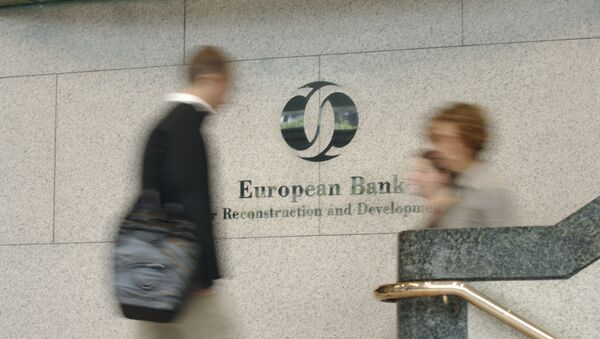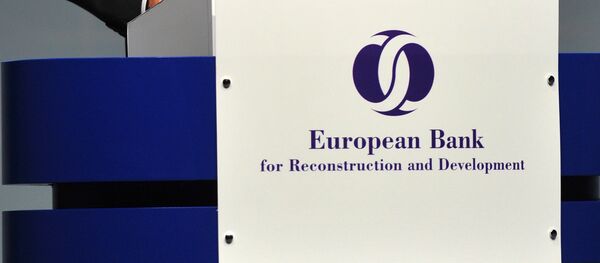MOSCOW (Sputnik) — The board of directors of the European Bank for Reconstruction and Development (EBRD) on Wednesday made a proposal to revise the permissible level of the cost-to-income ratio (CIR) to 50 percent from the current 33 percent, and this may signal a serious deterioration of the bank's financial indicators, according to a source in the Russian government.
"The previously established financial limits approved by EBRD shareholders will be exceeded as early as next year if the limit for 2018 is not revised," the source said.
The EBRD management thus intends to change one of the key indicators of the bank's financial stability. In 2015, the CIR limit was already been raised to 33 percent.
According to the source, the CIR is set to stand at 30.8 percent in 2017 and at 35.5 percent next year.
In addition, the format for adjusting one of the key indicators of the institution's financial stability has been changed, the source added.
"The management [of EBRD] decided to make a decision through the in absentia procedure and without meaningful discussion at the level of the bank's shareholders, instead of submitting the matter to the annual board meeting in Nicosia in May this year, as it was planned earlier."
Without Russia
The ratio of operating costs to operating income (cost-to-income ratio) is one of the main indicators of the financial stability of the bank. The EBRD has been historically holding this parameter at a stable level, within the 25 percent limit.
The Russian side has repeatedly warned that its withdrawal from the EBRD would have a direct impact on the dilution of the income, given that the Russian portfolio has been the most reliable and profitable in the EBRD area of operations for many years, in some years providing up to 50 percent of the total incomes of the institution.
"Thus, the EBRD remains in the 'zone of consequences' of wrongful political decisions that worsened the financial condition of the development institution. The management's systematic failures and careless policies can cause a series of adverse consequences, including reassessment and deterioration of the ratings," the source concluded.
In July 2014, EBRD shareholders decided to suspend investments in new projects in Russia due to the complicated geopolitical situation and US and European sanctions against Moscow. Russia, which is also a shareholder of the EBRD, considers the decision illegal and harmful for the organization itself. According to the bank, the EBRD's portfolio of investments in Russian assets is 3.5 billion euros, down from 3.7 billion euros in May this year.


